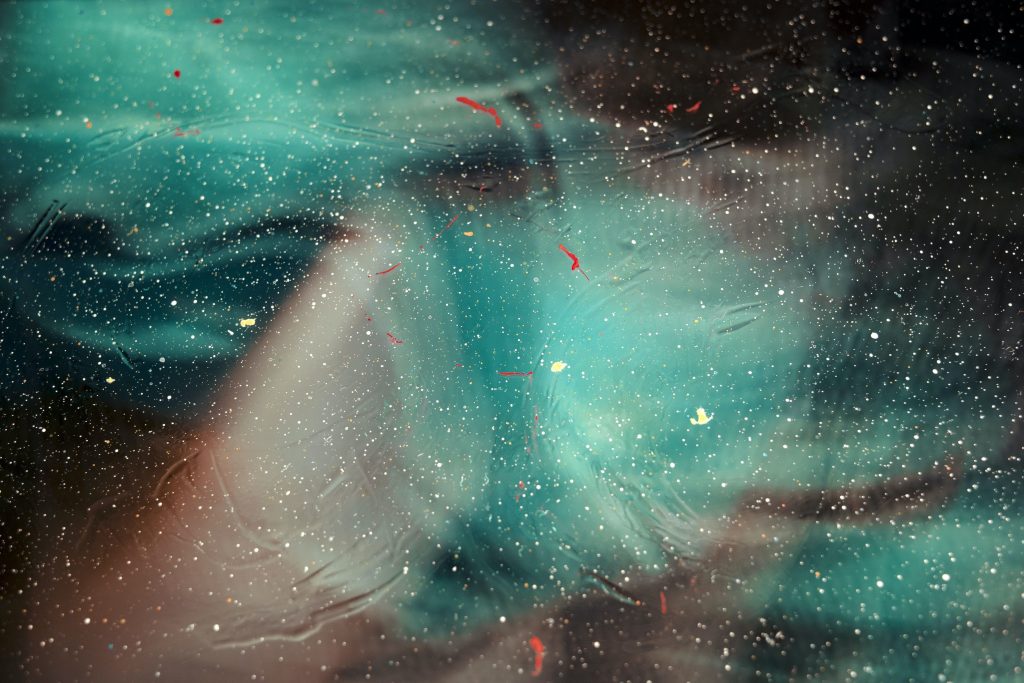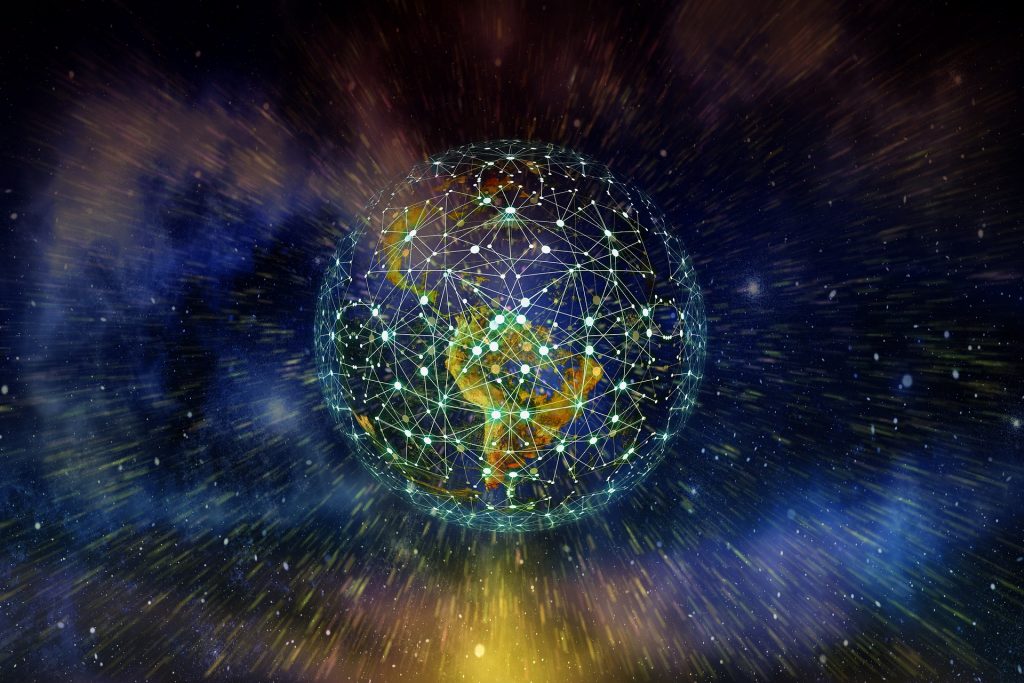Our Struggle Is with Illusion
The misinterpretation of self is at the center of much current unrest. What does this mean?
Many who believe the US election was ‘stolen’, suffer because they mis-equate an erroneous belief with their personal identity or sense of self. We all do this to a lesser or greater extent. We become attached to our opinions and stories, which in turn are conditioned by our childhood, our traumas, and the opinions and stories we consume.
Yes, beliefs matter. Truth and justice matter. Yet, our emotional attachment to any belief or ideology rooted in fear, greed, anger or false-pride should not be confused with who we are.
Einstein called the misinterpreted self “an optical delusion of consciousness”, the incessant stream of chatter in our heads we call “me, mine, I.” None of us are immune to the illusory self. It is the ego craving attention and validation. It criticizes others and can be sharp, sarcastic, selfish and even violent. At Kosmos, we sometimes call the illusory self, wetiko, and you can find articles about this at our website.
Our tendency to crave attention and validation can make us easy prey to elaborately constructed conspiracy theories, which turn our own powers of reason against us. Make no mistake, conspiracy theories are not “organic”, the intentional creators of these mind toxins have agendas. They are the game masters who pose ‘questions’ and plant ‘clues’ that manipulate our natural curiosity and make us feel clever indeed when we discover the ‘answers’ they want us to find.
Rumi, the Persian poet and jurist said, “sell your cleverness and buy bewilderment.” He understood that the illusory self is the barricade we erect against the ambiguities of unconditioned reality.
Recall the last time you were awestruck. Even in the midst of hardship, confusion and pain, we still have the capacity to experience awe – the vast sea, a bird in flight, the full moon, a newborn child. At the moment we are awestruck, we fully sense our livingness – beyond words or theories. We encounter our true self – our connected self.
This openness to awe and beauty is not conditioned by race, wealth, politics, or age. Awe is a human non-ordinary state of being, available always to anyone.
By awakening to our inter-connection, we discover that “I” am not my thoughts, but instead am the watcher of my thoughts, the seeker poised between the surface world of the illusory self, and the authentic living heart of creation. Grief and loss can also initiate us into this heightened state of wakefulness where feelings of selfishness, vengeance or hostility suddenly seem pointless in the light of unvarnished reality.
And so, what we are experiencing now is not a struggle between good and evil, or right and left. It is an inner struggle between the illusory self that will use anything to fill its emptiness – even violence – and the awakened self.
As the Zen teacher, Thich Nhat Hanh states:
“We can’t change the world if we are not capable of changing our way of thinking, our consciousness. That is why awakening, collective awakening, collective change in our way of thinking, our way of seeing things is very crucial. And all of us can help promote that. Our task is to come together and try to produce that kind of collective awakening.”
A daunting challenge, yes. Yet, the current quality of events suggests a hand of destiny offering us an evolutionary choice, an invitation to wake up to the Source that binds us – to each other and all beings. Ours must be the century of awakening, if we are to survive.

More on the Wetiko Mind Virus from Kosmos
Covid-19 is a Symbol of a Much Deeper Infection | The Wetiko Mind-Virus
By Paul Levy
For almost twenty years I’ve been writing about an invisible, contagious death-creating virus that no one is immune to that has been insidiously spreading and replicating itself throughout the human species. This deadly disease is a virus of the mind—the Native Americans call it “wetiko”—that literally cultivates and feeds on fear and separation. A psycho-spiritual illness, it is a psychosis in the true sense of the word, “a sickness of the spirit.” The origin and medium of operations of the wetiko virus is none other than the human psyche.
Seeing Wetiko: Through the Eyes of a Seventh Generation Algonquin
By Marcus Grignon
Posoh mawaw niwak. Nekataw manawich kikitem. (Hello everyone. I am going to speak.)
The injustice we witness every day, whether it be environmental, societal, and even economic, has a root cause. Nobody sees it because it has been invisible since the genocide committed against the cultures who lost their voice to speak its name. This being is not one sole individual, but a metaphysical entity bent on destruction. Wetiko in the Cree language, Wendigo in other Algonquin speaking tribes scattered throughout the Great Lakes region is what they call this evil spirit who represents environmental destruction, greed and ego in human beings
Seeing Wetiko: On Capitalism, Mind Viruses, and Antidotes for a World in Transition
By Alnoor Ladha and Martin Kirk
What if we told you that humanity is being driven to the brink of extinction by an illness? That all the poverty, the climate devastation, the perpetual war, and consumption fetishism we see all around us have roots in a mass psychological infection?
By Myk Estrada,
While I once saw my fluent English as a marker of success, I now realized it partly came at the expense of connecting with a rich history only accessed through the language of my great grandparents. When I became aware of the concept of wetiko, I was finally able to put a name to this internal struggle that’s put a divide between me & my culture.







The wisdom of the Editor of Kosmos Journal comes shining through this article.
Thank you dear teacher 🙂 xx
You write:
Einstein called the misinterpreted self “an optical illusion of consciousness”,
but he wrote “delusion” — not “illusion”. The two words have different implications.
Thanks Yoram! I fixed my error.
You see, one of the ‘problem’ with this ‘self’ or sense of self, is that it is ambiguous. By which I mean that if you denied its ‘presence’, you will find yourself sooner or later in a contradiction, for it obviously is. Even as we say it is an ‘illusion or delusion’, this statement still affirms the presences of this self as it is negating it (What is it that is illusory?). We could say that this self or sense of self is non-enduring, meaning that it is discontinuous as it comes and go in relation to situations. It also acts as an orienting center/point of focus ‘within’.
The way I ‘see’ it today, and don’t take what I am going to write as what is, but simply as a useful (or not) myth. This sense of self (including most ideas/representations/perspectives) ‘is/are’ a more or less functional illusion which has more or less value and validity in relation to a specific context, beyond which (context), this sense of self is meaningless.
And so as a functional illusion it does have some value and validity in relation to situations as we ‘live’ those situations. But that does not solve the question of what we mean by situations and the processes by which we ‘see/create/fabricate’ those situations. For in ‘reality’, there has never been any situation and even less a self or me within any of those ‘illusory’ situations. But then, just try to live your life without those fabrications/functional illusions, you won’t last more than a day. And so, there is something pragmatic, functional within those habits.
But then there is also another thing in regard to this sense of self; it can clearly be seen as having zero credibility as one take itself to be what it is not. And this has something to do with ‘perceiving pluralities’ or many selves, as we hear many people talk for example. We take it for granted when we listen to many people talk, that there is such a thing as many distinct and unique people talking, each being a separate, distinct, unique individual, each doing its own talking/thinking/listening separately, independently. What we fail to see, is that there is this talking and listening, but no specific, distinct, separated self that does this, for it is always the same one talking and listening. For all the apparent plurality is an only appearance of a plurality. In ‘truth’, there is only one and the very same one appearing as such and such, talking and listening. As one ‘sees/is’ this ‘one/oneness’, one ‘see’ this very same oneness in and as all. And as this ‘happens’, all sense of plural selves including our own self, loses all credibility. It is not a complete vanishing of this sense of self, but rather this complete loss of credibility of this ‘boring habitual separated self’ being the absolute truth in regard to who and what we are, with the consequence that we do not get con by this self anymore. (Well, we still do, but not as often and not with the same intensity and investment.)
The first thing that Buddha said after its awakening is; wonder of wonder, all beings are Buddha. They are all already fully awaken, all of them, already this oneness, this same one doing, talking, listening, walking. And so as one walk, one walks without walking, talks without talking, listens without listening.